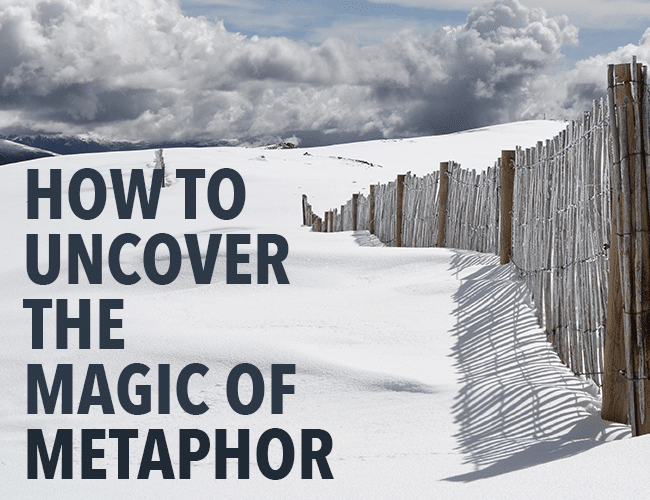
by Guest Blogger |
Have you ever looked back on a piece of your writing and cringed? Not necessarily because of its quality, but because you realize you would write the story differently now that some time has passed. You realize you were impulsive in writing about a life-changing situation, that your views on the experience have changed after having the time to reflect.
As writers, we love to draw from our own real-life stories in our work. Whether in a memoir, a creative essay, or a blog post, we can be eager to document the experiences we go through. Let’s look at the power of personal experiences and the trick to writing about them effectively.

by Guest Blogger |
I am not a poet but I read poems regularly. Their succinct and succulent lines transform the way I see the world around me, fill my head with color and sound and taste and most important of all to me, emotion. And all without lots of words.
If you can’t quite say what you’re getting at, playing with metaphor-making may unlock your voice and expand your piece. And even if you don’t think you need metaphors for your writing, metaphor-making may unlock new ideas for you.

by Guest Blogger |
Writing a novel that appeals to a younger audience takes a certain amount of finesse – especially if you are no longer in that age bracket! It is not easy to venture into the minds of young adults and, essentially, “relive” your own past.
Let’s have a look at six essential tips from published authors when it comes to writing YA novels.

by Guest Blogger |
Do you struggle with screenplay structure? Especially sustaining momentum in that long second act?
When learning how to write a script, writers are overwhelmingly taught that screenplay structure is all about three acts. The problem with this three act formula, however, is that it often leads to writers running out of steam in act two as they try to fill it with “conflict.” This means act two becomes a series of disconnected events that aren’t really connected and seem to exist just for the sake of “things happening.”
This happens when screenwriters focus too much on traditional three act structure and ignore the building blocks underneath each act—sequences.

by Guest Blogger |
If you’re anything like me, you hope in your heart of hearts that your writing will reveal a Great Truth to your readers, that it will open a doorway to compassion and understanding that will ripple out to change the world. Ah!
The authors who have been most effective in ushering me to that doorway are those whose writing reveals connections between images, ideas, and sensations I otherwise would have missed. Like Annie Dillard’s terrific simple line: “The air bites my nose like pepper.”
How did Dillard come up with such a lively sentence, one that bridges two physical sensations (cold and biting) and scent (pepper)? And how can we play around with unlike sensations to create similes that shine?







